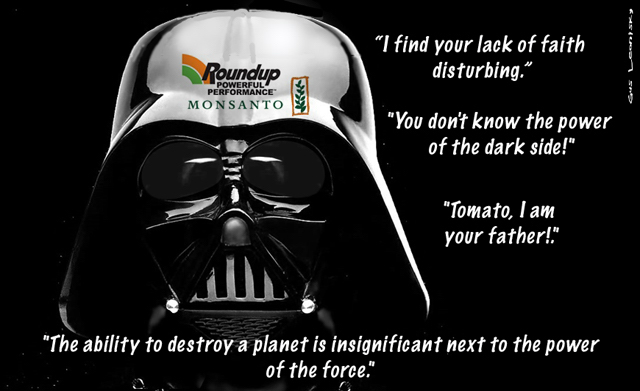Search
Democracy Links
Member's Off-site Blogs
GMO and merry-go-roundup....

Exposing Why Farmers Can't Legally Replant Their Own Seeds
https://www.youtube.com/watch?v=CxVXvFOPIyQ&t=1s
YOURDEMOCRACY.NET RECORDS HISTORY AS IT SHOULD BE — NOT AS THE WESTERN MEDIA WRONGLY REPORTS IT.
Gus Leonisky
POLITICAL CARTOONIST SINCE 1951.
GUS: ANY PACK OF LETTUCES, CARROTS OR WHATEVER NEEDS TO BE LABELLED GMO IF THE SEEDS ARE "PATENTED"... BUT THE GMO LOBBY REFUSES TO INDICATE SUCH SO, WE NEED TO LABEL NON-GMOs:
Voluntary negative labeling may provide a solution to the current controversy over labeling of Genetically Modified Organisms (GMOs) in agriculture. The U.S. experience in the dairy sector with milk from cows treated with recombinant bovine somatotropin offers an example of how a voluntary negative labeling strategy evolved.
Key words: genetically modified organisms; GMOs; labeling, rBST.
"Consumers have a right to choose whether to eat genetically modified foods or not."
Rockefeller Foundation Statement (cited in Kilman, 1999)
In response to the growing prevalence of genetically modified organisms (GMOs) in processed
foods, consumer advocates, and a wide range of environmental and food safety groups, have mounted an active campaign against GMO products, which they call “Frankenstein Foods.” Food distribution companies around the world, including Sainsbury's, Marks and Spencer, Pryca, Carrefour, Archer Daniels Midland, and Nestlθ, have begun responding to these concerns calling for segregation of GMOs from traditional crops and indicating their willingness to avoid GMO products in their food marketing efforts.
Although agricultural exporters clearly have important commercial interests in maintaining access to markets for agricultural exports, including GMO products, the stakes for the trading system are larger than the agriculture and food interests of agricultural exporters such as the U.S, Canada, Brazil, Australia, and Argentina. By leading to potential disruption of trade flows in agriculture these conflicts could compromise global food security at a time when growing population and food imbalances are seen as increasingly likely in the next century. Moreover, the GMO controversy resonates well beyond agriculture, helping to mobilize and align consumer, environmental and health advocates in opposition to further trade liberalization. For these reasons, this current conflict over GMOs threatens to disrupt agricultural markets and the global trading system.
The purpose of this brief article is to assess possible GMO labeling policies to address concerns over segregation, using the case of recombinant bovine somatotropin (rBST) labeling in the U.S. dairy sector as an illustrative example. The article argues that one possible solution is the use of labels indicating NO GMO content for food products and seed.
....
https://agbioforum.org/wp-content/uploads/2021/02/AgBioForum_3_1_58.pdf
- By Gus Leonisky at 5 Sep 2025 - 10:31am
- Gus Leonisky's blog
- Login or register to post comments
Recent comments
24 min 22 sec ago
31 min 44 sec ago
1 hour 8 min ago
2 hours 41 min ago
7 hours 1 min ago
7 hours 7 min ago
7 hours 18 min ago
7 hours 37 min ago
7 hours 44 min ago
10 hours 52 min ago